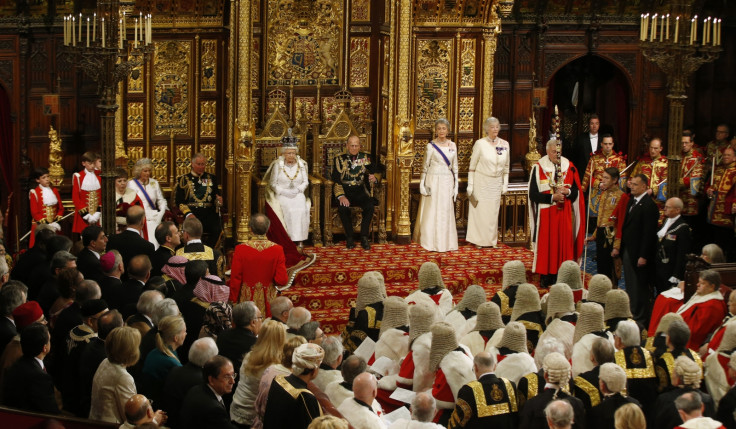Peerages 'to have 15-year time limit' in bid to shrink 'bloated' House of Lords
The Lords is the second largest legislative chamber in the world.

A 15-year time limit will be imposed on peerages as the UK government responds to pressure to reduce the size of Parliament's upper house, it has been reported.
At 800 members and counting, only China has a bigger legislative body and a groundswell of support has been growing for cutting the size of the upper house, whose members have no limit on how long they can serve.
The Times reported that a Lords' committee will call on the parts of of the house to cut their numbers in stages. There are 252 Tory peers, 199 from Labour, 100 Lib Dems and 180 crossbenchers.
Peers have been under fire for their daily expense allowance of £300 with a number who voted very little or not at all.
The Electoral Reform Society (ERS) said that figures show 115 peers who did not speak during debates last year received £1.2m in expenses, while 277 who spoke five times or fewer got £4m.
The ERS also said 394 peers who contributed to debates 10 times or fewer paid £7.3m and more than half got more than the average UK salary of £22,226.25.
On Monday (16 October) Andrew Lloyd-Webber, 69, said he would quit as a Tory peer because his work schedule meant he could not dedicate enough time to the job writing to his party's chief whip: "I feel my place should be taken by someone who can devote the time to the House of Lords that the current situation dictates".
Lord Fowler, the Lord Speaker, said that the chamber should smaller than the 650-member House of Commons, while Commons speaker John Bercow called for the number of peers to be halved.
Darren Hughes, ERS chief executive, said the move to cut back Lords was "encouraging" but reforms needed to go further.
"These proposals have two problems — they don't stop the creation of peerages by party leaders for political friends and donors. They also don't address the lack of democratic accountability in the Lords."
Changes to standing orders, the Lord's 'rule book', which peers would vote on, could usher in the change without any need for legislation. There are no plans to change the way peers are appointed, but a limit on the upper house would be set.






